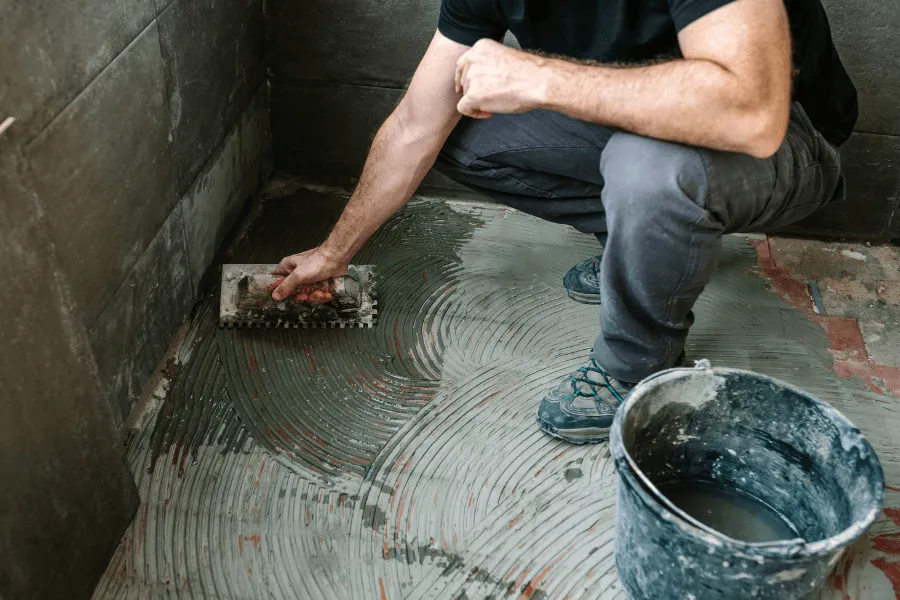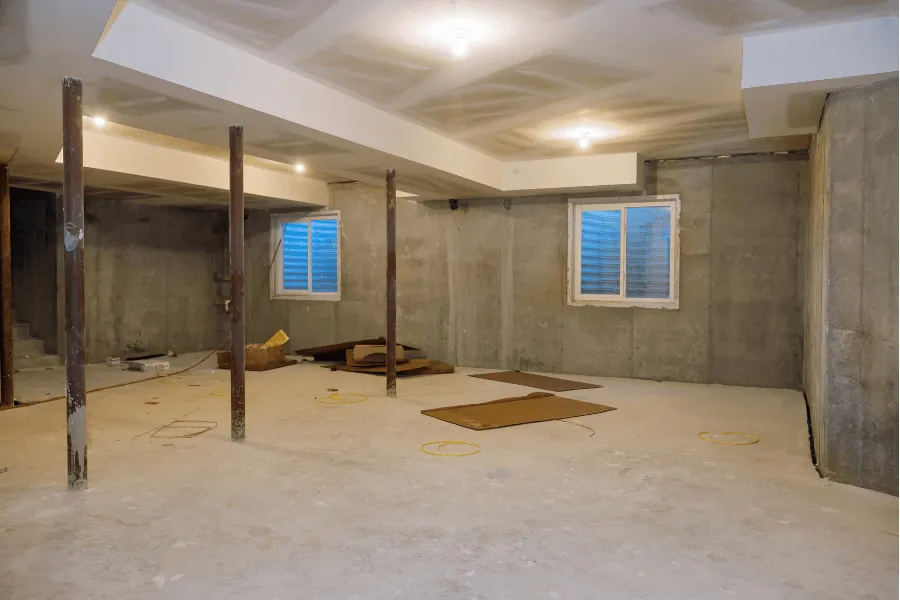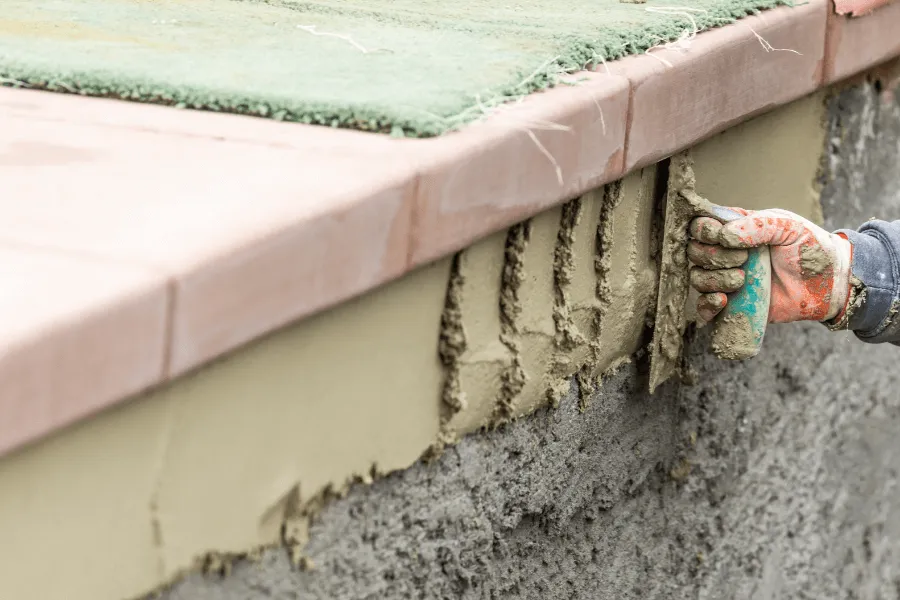Waterproofing your home is a big deal. It’s one of those things that you don’t really think about until it’s too late and you’re dealing with water damage, mold, or worse. So, if you’re considering waterproofing your home, you’ve probably come across two main types: interior and exterior waterproofing. Both are designed to keep water out, but they do it in very different ways. Let’s break down what makes them different and when you might need one over the other.
Interior vs Exterior Waterproofing: What’s the Real Difference?
At its core, interior vs exterior waterproofing are two approaches to the same problem: keeping water from getting into your home. But they each go about it in a unique way.
Exterior Waterproofing
When we talk about exterior waterproofing, we’re talking about tackling the problem from the outside. Think of it as preventing the issue before it even starts. This usually involves digging around the foundation of your home, applying a waterproof coating to the exterior walls, and then setting up a system to drain away any water that might try to make its way in.
Exterior waterproofing is pretty solid for stopping water from getting into the foundation in the first place. If you’re in an area with a lot of rain, snow, or a high water table, this could be a good move. It addresses the root cause, keeping water away from the outside of your foundation.
That said, exterior waterproofing is a bit more involved. You’ve got to dig up around the house, which can be a pretty big job. However, our experienced team at Diamond Waterproofing & Masonry are experts at installing exterior waterproofing properly, on time, and in a non-invasive way. Reach out to us and we can help you out with any exterior waterproofing issues!
Interior Waterproofing

Now, interior waterproofing is a bit different. Instead of stopping water before it gets to your foundation, you’re working to deal with water that’s already found its way in. Typically, this involves things like sealing cracks, applying waterproof coatings to walls, or even setting up a sump pump to push water out of the basement or crawl space.
Interior waterproofing doesn’t stop water from getting into the house, it works to get rid of it once it’s there. The idea is to manage the situation, so your living space stays dry. This type of waterproofing is often a go-to for existing homes that are already seeing water problems.
It’s a lot faster and easier to do than exterior waterproofing, which makes it a good option for quick fixes. But just because it’s faster and easier, that doesn’t mean just anyone can do it. That’s why at Diamond Waterproofing and Masonry, we offer professional interior basement waterproofing with the skills and know-how to get it done the right way the first time.
When Should You Go for Interior vs Exterior Waterproofing?
So, then which do you choose, interior or exterior waterproofing? Truly, it’s all about what’s going on with your property and what you’re trying to accomplish.
If you’re building a new house or you’re doing an entire remodel, exterior waterproofing is usually your best bet. It’s the best way of insulating your foundation from the get-go. The sooner you can keep water from even hitting the foundation, the better you’ll be for it in the long term. But that doesn’t mean it can’t work for already established homes.
But if you’re already dealing with leaks or moisture issues in your basement, then it’s probably better to start with interior waterproofing. It’s a quicker and cheaper fix. It will get the job done in terms of managing the water, especially if you’re just dealing with occasional dampness or minor leaks.
In some cases, you might need both. For example, if your home is in a particularly wet area, you could start with exterior waterproofing to keep water from coming in, then add interior waterproofing to manage any small leaks or moisture that slips past. It’s like covering all your bases.
Pros and Cons of Interior vs Exterior Waterproofing

Just like with most things, they each have their own strengths and weaknesses, with one not really being definitively better than the other. So, here’s a quick rundown of what you’re looking at when it comes to interior vs exterior waterproofing.
Exterior Waterproofing: Pros
- Stops water from entering the foundation before it’s even a problem.
- This is great if you’re in a place with lots of rain, snow, or high water tables.
- Helps prevent mold and mildew growth because water doesn’t get into your home at all.
- If the job is done properly then it’s a more long-term solution
Exterior Waterproofing: Cons
- It’s can take a lot of time to do. You’ve got to dig up the outside of the house, which can be a hassle.
- Not always possible for older homes or properties with difficult access to the exterior.
- It requires a bit more disruption to your landscaping or outdoor features.
Interior Waterproofing: Pros
- Faster and more affordable. If you’re just looking to keep water out of your basement or crawl space, this can be the way to go.
- It’s less disruptive to your home, no major digging or landscaping changes.
- Works well for homes that already have water issues and need a quick fix.
Interior Waterproofing: Cons
- Isn’t as effective as exterior when it comes to preventing water from getting in, it just deals with it once it’s inside.
- Over time, you may need to do more work or maintenance to keep things dry.
- If there’s a serious water problem, it might not be enough to handle it in the long run.
How Do You Know What’s Best for Your Home?
The bottom line is that there’s no one-size-fits-all answer when it comes to interior vs exterior waterproofing. It’s all about the situation you’re dealing with. If you’ve got a brand-new build or are working on a major foundation repair, exterior waterproofing is probably your best bet. If you’re just looking to keep things dry in an existing basement or crawl space, interior waterproofing can do the job. If you want to be extra secured for the future, you can even do both.
At Diamond Waterproofing & Masonry, we’ve seen it all when it comes to wet basements, and we’re here to help. No matter the type of basement waterproofing you need, our expert team is always ready to help.
